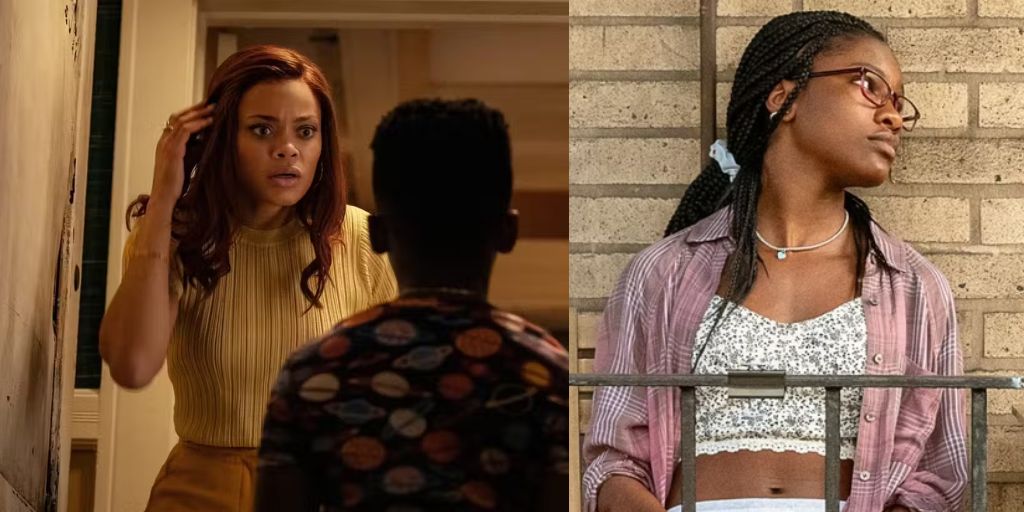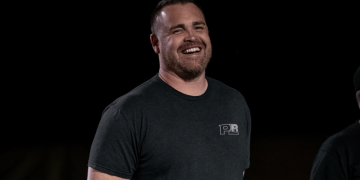Netflix’s latest original film, Lee Daniels’ The Deliverance, is currently a hit on the platform, holding a spot in the top 10 list. The film centers on Ebony (played by Andra Day), a single mother facing numerous challenges.
As her family moves into a new house, they encounter a supernatural presence that causes severe distress. The film features a notable cast including Glenn Close as Alberta, Ebony’s devout Christian mother; Demi Singleton, Anthony B. Jenkins, and Caleb McLaughlin, known from Stranger Things, as Ebony’s children; Mo’Nique as a child services worker who seems suspicious of Ebony; and Aunjanue Ellis-Taylor as a Reverend who supports Ebony in combating the evil forces.
A Troubling Shift: From Poverty to Pro-Christian Message
While The Deliverance has moments of intrigue, it struggles with its portrayal of poverty and intergenerational trauma. The film starts by presenting the harsh realities of Ebony’s life, including financial struggles and domestic abuse, compounded by the haunting of their new home.
However, as the story progresses, it shifts its focus toward faith and a pro-Christian narrative. This transition leaves behind the earlier themes of poverty and trauma, which are only touched upon briefly.
The film’s ending, which aims to be triumphant, presents Ebony as having overcome both literal and metaphorical demons. She appears to triumph over the supernatural evil and reconcile with her children. However, this resolution is somewhat misleading.
While Ebony’s spiritual journey is highlighted, the film does not adequately address the real-life issues she continues to face. Despite the apparent victory over the demonic forces, Ebony’s financial hardships and personal struggles remain unresolved.
In the final act, the film takes an unexpected turn. The first part of the movie concentrates on the grim reality of living in severe poverty. The narrative establishes that Ebony’s issues, such as food insecurity and domestic violence, existed before the supernatural disturbances began.
The demonic presence aggravates her problems, but it is not the root cause. As the story nears its conclusion, it shifts its focus to themes of faith and redemption. Ebony’s acceptance of Christianity and the resolution of the supernatural threat are framed as a victory.
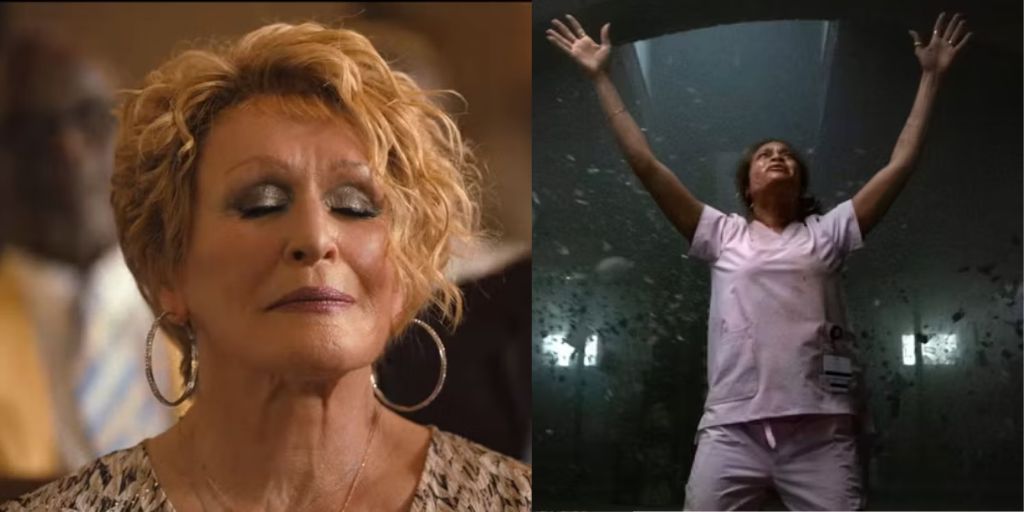
Yet, this is a superficial resolution to deeper issues. Ebony’s financial troubles, including a significant debt of $30,000, and her struggle with alcoholism are left unaddressed. The film’s portrayal of these problems as secondary to her spiritual journey is troubling.
The Problematic Portrayal of Religion and Its Characters
The film also implies that Ebony’s acceptance of Christ is supposed to bring her peace and resolve her difficulties. However, the reality is far more complex. Poverty is not easily overcome through faith alone, and the film’s narrative oversimplifies this issue.
Even with her children’s father back in her life, as suggested in the film’s final scenes, Ebony’s financial and personal issues are unlikely to improve significantly. The portrayal of her reconciliation with her estranged partner feeds into anti-divorce sentiments common in some Christian circles, adding another layer of complexity to the film’s message.
In addition to its problematic handling of poverty and faith, the film’s depiction of religious characters is also problematic. Alberta, Ebony’s mother, is portrayed as deeply religious but also highly unhelpful and judgmental.
Her response to Ebony’s financial struggles, including the dismissive comment, “The Lord don’t put anything you can’t handle,” fails to provide any practical support. Instead, Alberta’s behavior comes across as smug and unsympathetic.
The film implies that Alberta’s religious devotion makes her a good person, despite her past actions, such as allowing men to abuse Ebony as a child. Alberta’s lack of remorse and her continued harsh treatment of Ebony highlights a significant flaw in the film’s portrayal of faith and morality.
Similarly, Bernice James, the Reverend with an interest in the Jackson family’s supernatural experiences, is not depicted positively either. She confronts Ebony outside a bar and dismisses her past trauma with a comment that suggests Ebony’s suffering is her own fault.
Bernice’s remark, “I think you think that this is transactional. It’s not transactional,” is both insensitive and inaccurate. Within the film’s narrative, the supernatural suffering the Jackson family endures seems to be directly tied to Ebony’s belief in God.
The supposed transactional nature of faith is depicted as arbitrary and capricious, with God not providing protection or relief from supernatural torment. This portrayal undermines the film’s religious message and presents a skewed view of faith.
The Deliverance attempts to combine elements of supernatural horror with a religious message but ends up falling short in both areas. The film’s shift from showing poverty and trauma to focusing on faith and redemption is jarring and undermines its earlier themes.
The portrayal of religious characters as unhelpful and hypocritical adds another layer of complexity to the film’s narrative. While the film may offer moments of intrigue, its full execution of faith and poverty issues leaves much to be desired.
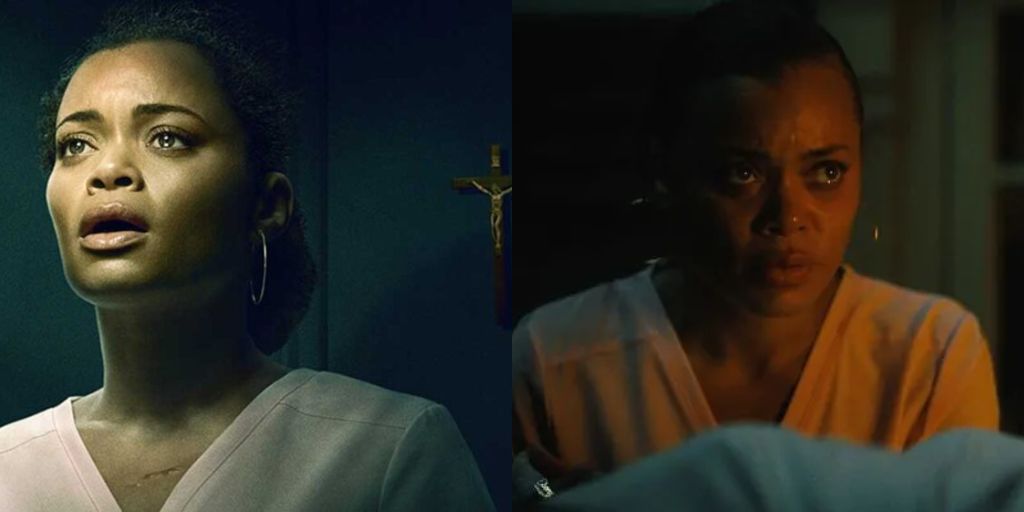
Lee Daniels’ The Deliverance is a Netflix original film that follows Ebony (Andra Day), a single mother struggling with poverty and domestic abuse, who encounters a harmful supernatural presence in her new home. Initially, the film shows these serious issues but abruptly shifts to focus on faith and a pro-Christian message.
Although Ebony seems to triumph over the supernatural evil and reconcile with her children, her real-life problems, such as significant debt and ongoing alcoholism, remain unresolved. The film’s portrayal of religious characters, including Ebony’s mother and a Reverend, is also problematic, presenting them as unhelpful and hypocritical.
Christian Themes Themselves Aren’t The Real Issue
The Deliverance incorporates Christian themes, which is not inherently problematic. Many horror films, like The Exorcist and various vampire movies, effectively use Christian symbols in their narratives.
Films such as Night of the Hunter show religious themes while addressing deeper issues like hypocrisy and personal redemption. The real problem with The Deliverance is not its Christian themes but its failure to integrate these themes with the film’s view of poverty and trauma.
Ebony’s turn to faith and church involvement could have provided genuine opportunities for positive change, considering the support systems many churches offer, such as childcare, food banks, and addiction recovery programs. However, the film does not show these potential benefits or the complexities of how churches often fail their vulnerable members.
Instead, The Deliverance presents a sanitized version of religion, avoiding the messy realities of institutional failures. Churches, especially in low-income areas, often struggle with issues like gendered abuse and economic view. The film’s superficial treatment of faith does not address these critical aspects.
While other Christian films, like Night of the Hunter, manage to balance religious themes with a critique of church shortcomings, The Deliverance fails to depict the church’s role in a meaningful way.
Despite its pro-Christian message, the film lacks depth and resolution. Ebony’s personal struggles, including her significant debt and alcoholism, remain unresolved.
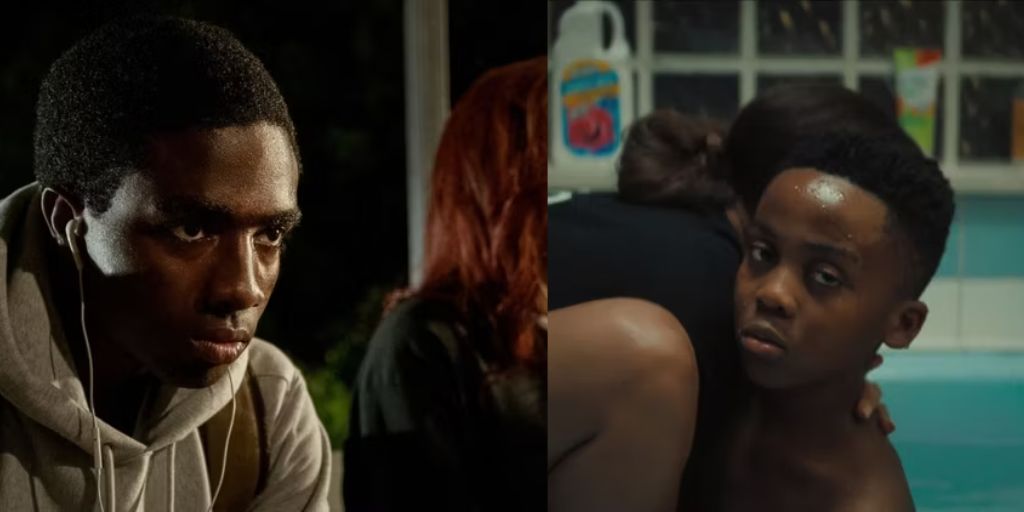
The film’s shift to a religious narrative does not provide a satisfactory conclusion to her issues, making its storytelling efforts feel incomplete. The Deliverance fails to convince or engage its audience beyond reinforcing existing beliefs, missing an opportunity to craft a nuanced and compelling story.
The Deliverance integrates Christian themes but fails in storytelling. While it shifts from addressing poverty to promoting faith, it overlooks the church’s real-world shortcomings. The film’s superficial treatment of religion leaves Ebony’s financial and personal struggles unresolved, making its narrative feel incomplete and lacking depth.


